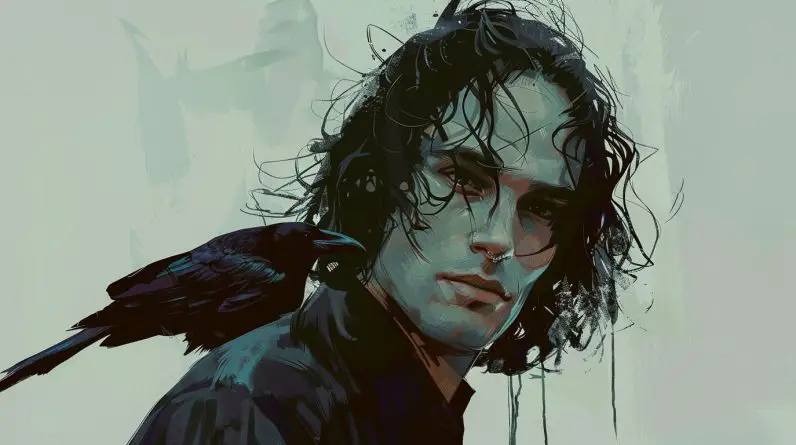
Bruce Lee, though born Lee Jun-fan in San Francisco in 1940, felt deep links to the city of Hong Kong, where he spent many of his formative years – and the city felt similarly connected to Bruce. This legendary actor and martial artist traveled across the Pacific, connecting the East and West through his art, philosophies, and indelible cinematic impressions. His association with Hong Kong, a vibrant city known for its remarkable fusion of cultures, wasn’t just a chapter in his life but an intricate plot that shaped his ascension to international stardom.
Journey Begins: Roots and Early Life in Hong Kong
Lee’s parents, deeply ingrained in the entertainment industry of Hong Kong, provided an environment that nudged young Bruce into showbiz. His father, Lee Hoi-chuen, was a renowned Cantonese opera star, and his mother, Grace Ho, was connected to one of Hong Kong’s affluent families. Exposed to the limelight early, Bruce starred in numerous films as a child actor in Hong Kong, showcasing a natural affinity towards acting and an innate charisma that endeared him to audiences.
Despite being born in the USA, Lee spent his formative years in Hong Kong, navigating through the bustling streets, absorbing the eclectic culture, and unknowingly, preparing himself for a future where he would seamlessly intertwine eastern and western philosophies both on and off screen. His early years in Hong Kong’s Kowloon district not only steeped him in traditional Chinese culture and martial arts but also exposed him to a plethora of Western ideas, due to Hong Kong’s status as a British colony.
Martial Artistry: More Than Physical Discourse
Bruce’s encounter with martial arts wasn’t merely a physical discourse but an emotional and philosophical journey shaped by his experiences in Hong Kong. The city, back then, was a melting pot of ideas, cultures, and socio-political narratives that significantly influenced his holistic approach towards martial arts. His creation, Jeet Kune Do, was not merely a fighting style but a philosophy which emphasized practicality, efficiency, and directness, mirroring his personal belief in a flexible, adaptive approach to both fighting and life.
Hong Kong: A Catalyst to International Stardom
In the early 1970s, when Bruce Lee returned to Hong Kong after spending several years in the USA, the city was undergoing a cinematic evolution. Hong Kong cinema was on the cusp of breaking into international markets, and Lee, with his transcultural appeal, dynamic martial arts, and magnetic screen presence, emerged as the poster boy for this global breakthrough.
Bruce signed a two-film contract with Golden Harvest, a prominent Hong Kong film production company. His first film under this banner, “The Big Boss” (1971), was a monumental success, shattering box office records in Hong Kong. The international markets also responded with overwhelming positivity, propelling Lee into an overnight sensation across Asia.
Bridging the East and West: A Cultural Synthesis
Lee’s arrival in Hong Kong cinema was serendipitously timed with the city’s aspirations to go global. His international outlook, understanding of Western sensibilities, and mastery of Eastern martial arts provided a rare amalgamation that appealed globally. His second film, “Fist of Fury” (1972), not only established him as a superstar in Asia but also garnered attention from Western filmmakers, thus bridging the cultural and cinematic gap between the East and West.
“Bruce Lee” became a brand synonymous with martial arts, action cinema, and philosophical depth, appealing to a wide range of audiences and carving a niche in global pop culture. Films like “Way of the Dragon” (1972), where he famously fought Chuck Norris in the Colosseum in Rome, and “Enter the Dragon” (1973), a Hong Kong-American co-production, broke international box office records and cemented Lee’s legacy as a global icon.
A Legacy Etched in the Heart of Hong Kong
Bruce Lee’s untimely death in 1973 left the world in shock, yet his legacy lived on, pulsating through the streets of Hong Kong and the arteries of global cinema. His life, art, and philosophy continue to be celebrated, studied, and revered globally, with Hong Kong being the epicenter of this homage.
Today, Bruce Lee’s statue on the Avenue of Stars in Tsim Sha Tsui, overlooking Victoria Harbour, stands as a testament to his enduring legacy and his inextricable link with Hong Kong. Tourists and locals alike visit this spot to pay homage to a man who brought Hong Kong cinema to the global stage, forever embedding the city within his legendary tale.
Bruce Lee, though a global icon, will always be particularly cherished in Hong Kong, where his journey began and where his spirit perpetually dwells, inspiring generations to come. His success can be attributed to a confluence of factors – his unparalleled martial artistry, philosophical depth, charismatic screen presence, and a unique ability to synthesize Eastern and Western cultural elements. Hong Kong, with its vibrant and eclectic nature, served as a perfect backdrop, enabling Lee to amalgamate various influences into a coherent, universally appealing narrative.
Lee’s journey from the bustling streets of Kowloon to becoming a global icon is a tale entwined with struggle, perseverance, and an unyielding belief in self-expression, embodying the resilient spirit of Hong Kong itself.






